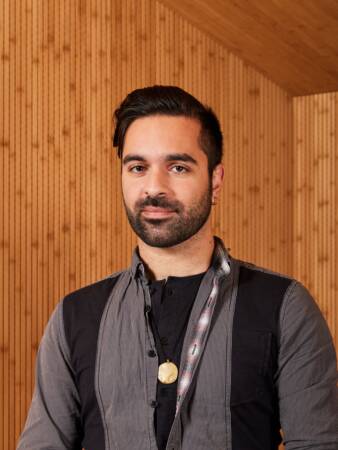
3:30 pm to 4:30 pm
1305 Newell Simon Hall
Abstract:
For robots to be able to truly integrate human-populated, dynamic, and unpredictable environments, they will have to have strong adaptive capabilities. In this talk, I argue that these adaptive capabilities should leverage interaction with end users, who know how (they want) a robot to act in that environment. I will present an overview of my past and ongoing work on the topic of Human-Interactive Robot Learning, a growing interdisciplinary subfield that embraces rich, bidirectional interaction to shape robot learning. I will discuss contributions on the algorithmic, interface, and interaction design fronts, showcasing several collaborations with animal behaviorists/trainers, dancers, puppeteers, and medical practitioners.
Bio:
Kim Baraka is a (tenured) assistant professor in the Computer Science Department at the Free University (VU) in Amsterdam, and member of the Social AI group. Before joining the VU, he was a postdoctoral fellow in the Socially Intelligent Machines Lab at UT Austin. He holds a dual Ph.D. in Robotics from Carnegie Mellon University (CMU) and the Instituto Superior Técnico in Lisbon, Portugal and a M.S. in Robotics from CMU. His interdisciplinary research, at the cross-roads of human-centered robotics, machine learning, and dance, focuses on enabling robots and humans to teach and learn from each other through situated social interactions. He is part of the Hybrid Intelligence Center, which fundamentally researches hybrid human-AI systems, with applications to healthcare and education. As a professionally trained contemporary dancer, he is particularly interested in new frontiers in robotics that draw inspiration from the performing arts.
